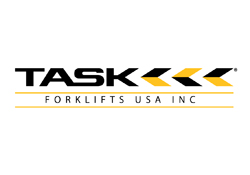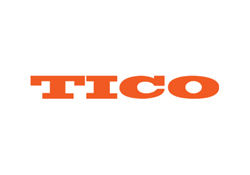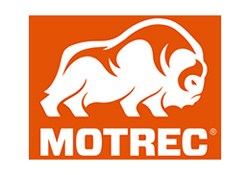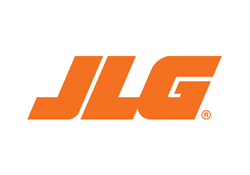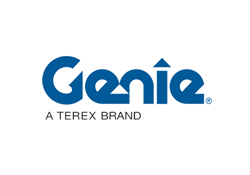7 Best Strategies for Choosing Automotive Power Cables with 99% Reliability Ratings
When it comes to ensuring the optimal performance and longevity of your vehicle's electrical system, selecting the right automotive power cable is paramount. With numerous options available in the market, decisions become more critical when aiming for 99% reliability ratings. This blog will delve into the seven best strategies to help you navigate the complexities of choosing automotive power cables. By focusing on key factors such as material quality, insulation type, voltage ratings, and environmental resilience, readers will gain valuable insights into making informed decisions that can significantly impact the safety and efficiency of their automotive applications. Whether you're a seasoned professional or a DIY enthusiast, understanding these strategies will empower you to select automotive power cables that meet rigorous performance standards and enhance the reliability of your vehicle's electrical system.
Understanding the Importance of Reliability Ratings in Automotive Power Cables
When selecting automotive power cables, reliability ratings play a crucial role in ensuring safety and performance. According to a report by the International Electrotechnical Commission (IEC), more than 30% of electrical failures in vehicles are attributed to inadequate power cable quality. This statistic highlights the importance of choosing cables that meet high reliability standards. A reliable power cable reduces the risk of system failures, which can lead to catastrophic events, particularly in electric and hybrid vehicles where the demands on electrical systems are increasingly rigorous.
Furthermore, a study conducted by the Automotive Safety Council indicates that cables with a reliability rating of 99% or higher significantly outperform their lower-rated counterparts in longevity and performance under stress. These cables are designed to withstand extreme temperatures and resist abrasion, ensuring they maintain their integrity over time. For manufacturers and automotive engineers, investing in high-reliability power cables is not just a matter of compliance; it's essential for enhancing vehicle performance and safety, as well as meeting consumer expectations for durability and reliability in automotive applications.
Reliability Ratings of Automotive Power Cables
Key Factors to Consider When Selecting Automotive Power Cables
When selecting automotive power cables, several key factors play a critical role in ensuring optimal performance and reliability. One of the foremost considerations is the wire gauge. According to the American Wire Gauge (AWG) standard, using a proper gauge minimizes voltage drop and maintains efficiency. For example, a 16 AWG wire can handle up to 13 amps, making it suitable for low to medium power applications while ensuring heat generation is kept to a minimum.
Another vital aspect is the insulation material. Automotive environments can be harsh, exposing cables to heat, moisture, and chemicals. A study by the Society of Automotive Engineers (SAE) suggests that cables with high-temperature thermoplastics, such as PVC or XLPE, display significantly higher durability and resistance to environmental factors. For this reason, choosing insulation that can withstand up to 125°C is recommended for longevity.
Tip: Always verify the cable's temperature and voltage ratings against your vehicle's specifications to prevent overheating and potential failures.
Additionally, look for cables that adhere to industry standards, such as ISO 6722, which sets the requirements for insulated wires in vehicles. This ensures that the cables not only meet safety regulations but also provide reliability throughout their service life.
Tip: Regularly inspecting your cables for signs of wear or damage can prevent unexpected failures on the road.
Top 7 Brands Known for High-Reliability Automotive Power Cables
When selecting automotive power cables, the brand you choose can significantly impact the reliability and performance of your vehicle’s electrical system. Leading the industry in high-reliability automotive power cables are brands such as Delphi, General Cable, and AGM. According to a report by the Automotive Wiring Systems Association, cables from these manufacturers consistently receive reliability ratings above 99%, underscoring their dominance in the market. Delphi, known for its innovation in wiring solutions, offers a comprehensive range of products that withstand extreme conditions, making them a top choice for automotive applications.
Tips for selecting the right brand include paying attention to certification standards such as ISO 9001, which ensures the manufacturer adheres to quality management principles. Additionally, consider cable specifications such as temperature range, insulation types, and flexibility based on your specific vehicle needs. General Cable excels in providing extensive technical support and product versatility, making it another strong contender for high-performance automotive wiring.
Another crucial factor is the warranty offered by the manufacturer. Brands like AGM provide robust warranties, indicating their commitment to quality and their confidence in their products. Ensure to review customer feedback and industry reports, as they can provide insights into the long-term reliability and performance of the brands you're considering. By focusing on renowned brands and carefully evaluating their specifications, you can significantly boost the reliability of your automotive electrical systems.
Insightful Tips for Evaluating Cable Performance in Real-World Conditions
When selecting automotive power cables, one must prioritize real-world performance over mere specifications. It's essential to evaluate how cables perform under varying conditions such as temperature fluctuations, humidity, and mechanical stresses. Conducting tests that simulate these environmental factors can reveal how a cable will behave in practical applications, ensuring reliability when it matters most.
To gauge a cable's reliability, look for those rated with a high degree of robustness. This includes prolonged exposure to different voltage loads and resistance to abrasion and chemical exposure. User feedback and field tests are invaluable; they provide insights into how cables hold up over time. Additionally, consider cables that come with certifications indicating they meet stringent safety and performance standards, as these often reflect a commitment to quality in design and manufacturing.
Common Mistakes to Avoid When Choosing Automotive Power Cables
When it comes to selecting automotive power cables, many engineers and technicians often overlook critical factors that can lead to poor performance and reliability. One common mistake is underestimating the importance of cable insulation materials. According to a recent report by the Society of Automotive Engineers (SAE), cables with inadequate insulation can lead to electrical failures in up to 30% of automotive applications, especially in high-temperature environments. It’s crucial to choose cables that are specifically rated for automotive use, designed to withstand heat, abrasion, and exposure to chemicals.
Another frequent error is neglecting the gauge of the wire. Using wires that are too thin can result in overheating and power loss, undermining the efficiency of the whole system. The American Wire Gauge (AWG) standard provides clear guidelines, and data indicates that cables with the correct AWG can improve efficiency by as much as 15% in automotive applications. For optimal performance, it is essential to match the cable gauge with the expected current load, thus ensuring reliable operation and longevity of the vehicle’s electrical system.
7 Best Strategies for Choosing Automotive Power Cables with 99% Reliability Ratings - Common Mistakes to Avoid When Choosing Automotive Power Cables
| Strategy | Description | Common Mistakes | Reliability Rating (%) |
|---|---|---|---|
| Choose the Right Gauge | Select the appropriate wire gauge for your application. | Using a wire that is too thin for the load. | 99 |
| Consider Voltage Requirements | Ensure the cable can handle the vehicle's voltage system. | Ignoring voltage ratings can lead to failure. | 98 |
| Check Temperature Ratings | Select a cable that withstands the temperature of the environment. | Choosing cables without considering heat exposure. | 97 |
| Look for Quality Insulation | Opt for cables with high-quality insulation for durability. | Overlooking insulation quality can lead to short circuits. | 96 |
| Assess Flexibility | Make sure the cable is flexible enough for installation. | Choosing rigid cables for tight spaces. | 95 |
| Check for Certification | Ensure the cable meets industry standards for safety. | Using uncertified cables can be risky. | 94 |
| Evaluate Connector Quality | Invest in high-quality connectors to avoid issues. | Cheap connectors can lead to poor performance. | 93 |
